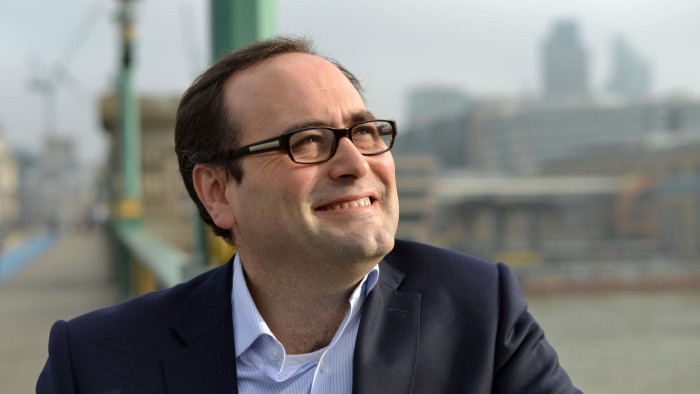In pursuit of an EMBA for that global perspective

Roula Khalaf, Editor of the FT, selects her favourite stories in this weekly newsletter.
Fourteen years ago Maurizio Bragagni arrived in London unable to speak a word of English. An employee in his family’s telecoms cable business, Tratos, he had spent his entire life up until then in northern Italy.
Today he is chief executive of the UK arm of the company, Europe’s only independent cable manufacturer still making its product on the continent, and he punctuates his conversation with archetypes of the British vernacular such as “brilliant” and “pragmatic”.
Mr Bagagni’s uncle, Albano, is president of the parent company, Tratos Cavi, but Mr Bragagni’s responsibilities now extend to overseeing all the group’s companies outside Italy.
Although his wife and four children live close to the global headquarters of Tratos in the picturesque hills of Tuscany, Mr Bragagni spends a substantial amount of time in London, both managing his business and completing an EMBA – an MBA for working executives – at Cass Business School.
We meet near his London home in Farringdon, on the edge of the City, a stone’s throw from Cass. The fact that it is a business school in the heart of Europe’s business capital was a key reason for studying there, Mr Bragagni explains.
“Part of the reason I chose Cass was the logistics,” he says, adding that he can walk from his apartment to his classes. “But it was also because it was the university of the City.”
It is the morning after the Scottish independence referendum and Mr Bragagni, while clearly relieved that his adopted country has not been split in two, praises the way the democratic process was employed to resolve a major disagreement.
“People here take a risk. You fight for something and you fix it. It is something that has always astonished me.”
Mr Bragagni studied law for his undergraduate degree at Pisa University, but never had to learn English because his alma mater, established in the 11th century, is one of the only colleges that continues to conduct all its lectures in Italian.
After graduating he joined Tratos. While it was clear that he was never going to be just another employee, he notes that his first job was on the factory floor helping to make the cables.
“It was a very important lesson from the university of life,” he says. “It was very important for me to understand what things looked like for all my staff.”
The EMBA came about because he wanted to understand how to manage Tratos in a period of enormous change for the company and the industry in which it operated following the deregulation of the European telecoms market in 1994.
Until then, the continent’s cable market had been fairly stable with operators such as Tratos acting as monopoly suppliers to their national telecoms carriers. The wave of privatisations, however, pushed domestic carriers to find efficiencies in their operations, which meant pressurising their suppliers to cut costs. Many cable suppliers in turn relocated their manufacturing operations to developing countries in an effort to undercut their new competitors.
Tratos sought a different strategy, trying to compete on the quality of its product rather than the price. However, the company still needed to adapt the way it was managed.
“For 50 years we had a clear strategy and there was clear centralised power under my uncle,” says Mr Bragagni.
“That was possible because the market was simple and there were only a few customers. Now that is no longer possible because we are exporting to 36 countries.”
Tratos is in better shape than many of its rivals, which are fighting for their survival, Mr Bragagni notes. “The company has been very well led by my uncle.
“The point is we now need people who are able to represent the purpose of the company, the mission of the company, in multiple locations and everywhere for us to be local.”
At Tratos UK’s production plant on Merseyside, this has meant investing not just in the factory that makes the cables but in education locally to help rebuild a support infrastructure that had declined along with manufacturing in the region, Mr Bragagni notes.
“In Knowsley we found it was difficult to find a mechanic or electrician to repair a machine,” he says. “We realised that the local market needed to be educated that these skills were necessary again.”
This year Tratos secured a £6.9m financing package from HSBC to develop its UK operations and start manufacturing high-voltage cable at the plant, with the expectation that the current order book will enable it to double turnover to £40m in the next year.
Although he has still to finish his formal studies at Cass, Mr Bragagni claims the experience has already proved valuable.
“I have been educated to ask questions about everything,” he says. “One of the first things I was told on my MBA course was that the computer gives you the answer. The real problem is to have the right question.”
His fellow students have helped him look at business opportunities, out of which came a push to sell cables to the railway industry, which, Mr Bragagni says, is already bearing fruit.
He has also been able to gain some support in developing new financial plans to help the business fund growth to the next level, which may involve a stock market listing in London at some stage.
Mr Bragagni says doing the MBA was in part an effort to provide leadership by example to his senior executive team at Tratos. When he completes his studies, he hopes some of these people will follow his lead. “The message I wanted to present was that it is not just me who can do it,” he says.
Comments